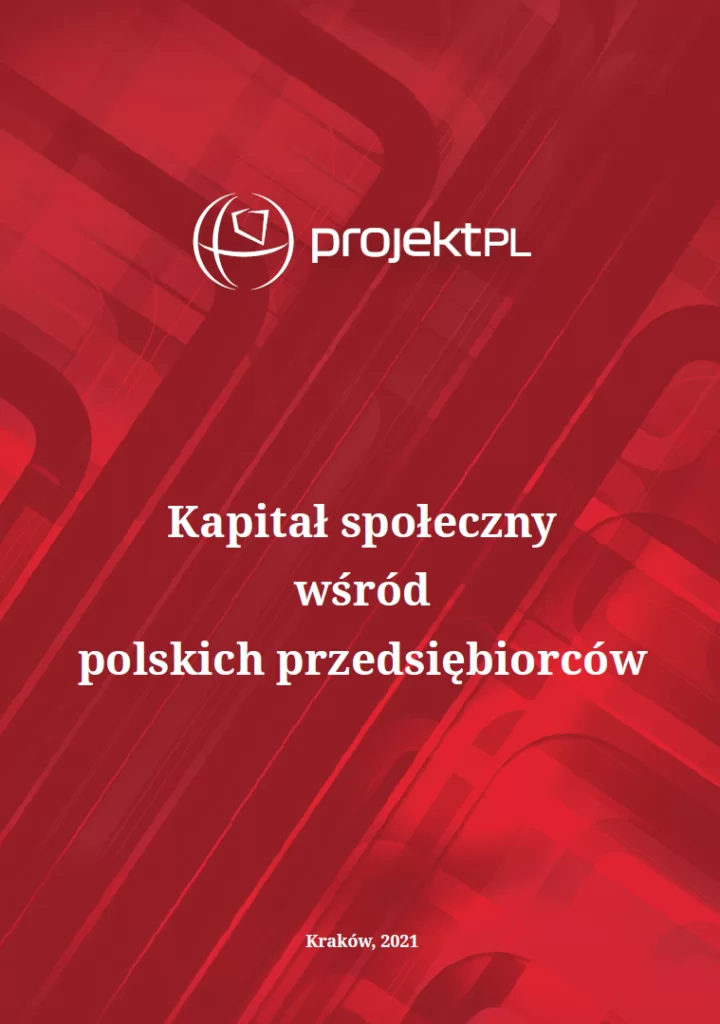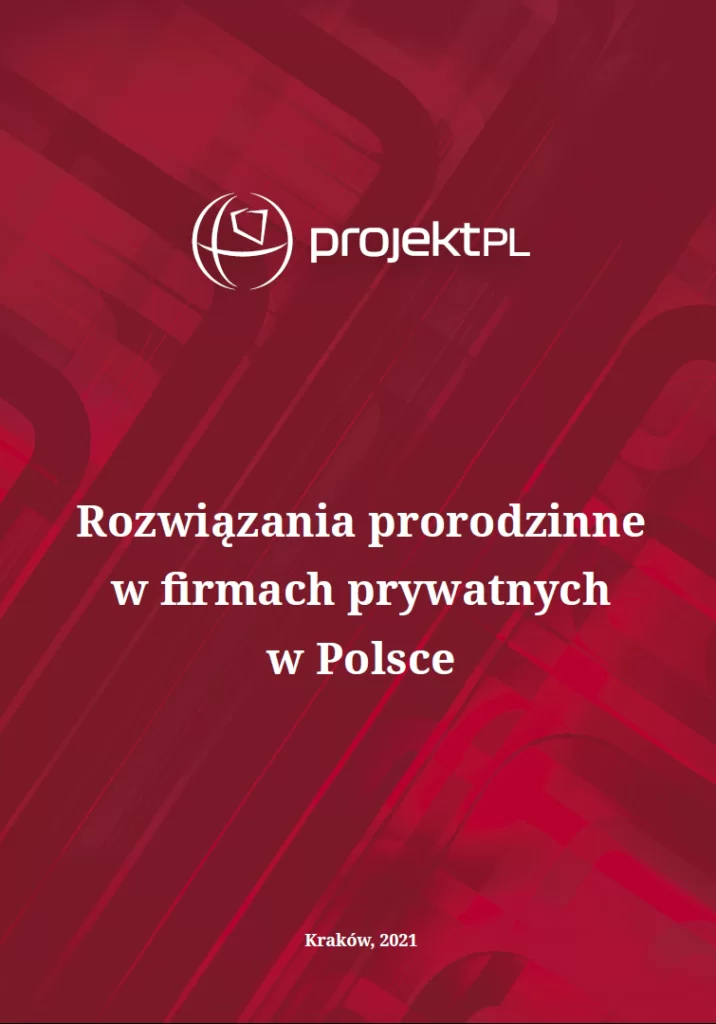
A necessary factor to start a discussion on family-friendly solutions is the trust that employers and employees should have in each other. Moreover, entrepreneurs must be willing to take responsibility for a wider fragment of social reality than just their enterprises. This is why the Project PL Foundation conducted a survey of social capital among Polish entrepreneurs, the result of which is this Report.
The Report offers a discussion of the many theoretical approaches to social capital. However, the usefulness of the concept is not only demonstrated by the abundance of theoretical discussions on the subject. The best recommendation and proof of usefulness is its widespread use in everyday language, which is also evidenced by the interviews conducted.
The interviewees perceive social capital as a network of voluntary and spontaneous social relations, reciprocity and obligations, although they do not always regard it exclusively as a desirable value. One might ask whether the terms appearing in these interviews, such as honesty, reliability or trust, are understood by all of them in the same way.
In the Report, the reader will find an attempt to answer questions such as:
Do employers trust their employees? How is this trust expressed?
How do they perceive their responsibility to society?
What is the purpose of doing business?
Should companies engage in social activities or focus only on business?
What is the attitude of entrepreneurs towards taxes and the state?
How does the involvement of entrepreneurs in building the local community manifest itself?
Do they feel the need for civic engagement?
The survey provided information on how all the conditions associated with the vibrant economic transition look from the perspective of both employers and employees.
By using the in-depth interview method, it was possible to obtain results that go beyond academic definitions and generalities. The reflections and needs of employees, sometimes expressed in a very direct way, can be taken not only as a curiosity, but also as an out-of-the-box opportunity to learn the point of view of those directly functioning in this environment. Reliably collected data makes it possible to see not only the above-mentioned, quite common, knowledge of concepts such as social capital, responsibility or trust, but also their everyday and concrete dimension.

Taking into account the above-mentioned criteria, the Project PL Foundation has prepared a comprehensive Report on family-friendly solutions in private enterprises in Poland. The Report provides answers to the following questions:
How many Polish entrepreneurs implement family-friendly solutions in their companies?
Which solutions are most popular in Polish companies?
How do entrepreneurs assess these solutions?
How does the family-friendliness of employers affect the willingness of employees to return after parental leave?
Do entrepreneurs communicate their family-friendliness? To what extent and in what ways do they do so?
The aim of the Report is to indicate the role played by the family in the development of private enterprises. Its added value is the specific recommendations, both indicating to entrepreneurs how family-friendly activities can support the development of their companies and suggesting to regulators specific legal solutions to facilitate the application of family-friendly solutions, such as, for example, childcare support, paternity leave, flexible working hours, permanent limited-time work or the availability of additional services to support the building of quality relationships within the families of business stakeholders.
Twoje wsparcie pomaga nam wzmacniać rodziny, budować silne wspólnoty i promować świadome korzystanie z technologii, w tym higienę cyfrową. Każda wpłata realnie wspiera nasze projekty edukacyjne i inicjatywy społeczne.
Nr konta: PEKAO SA
35 1240 4588 1111 0011 0165 2361
